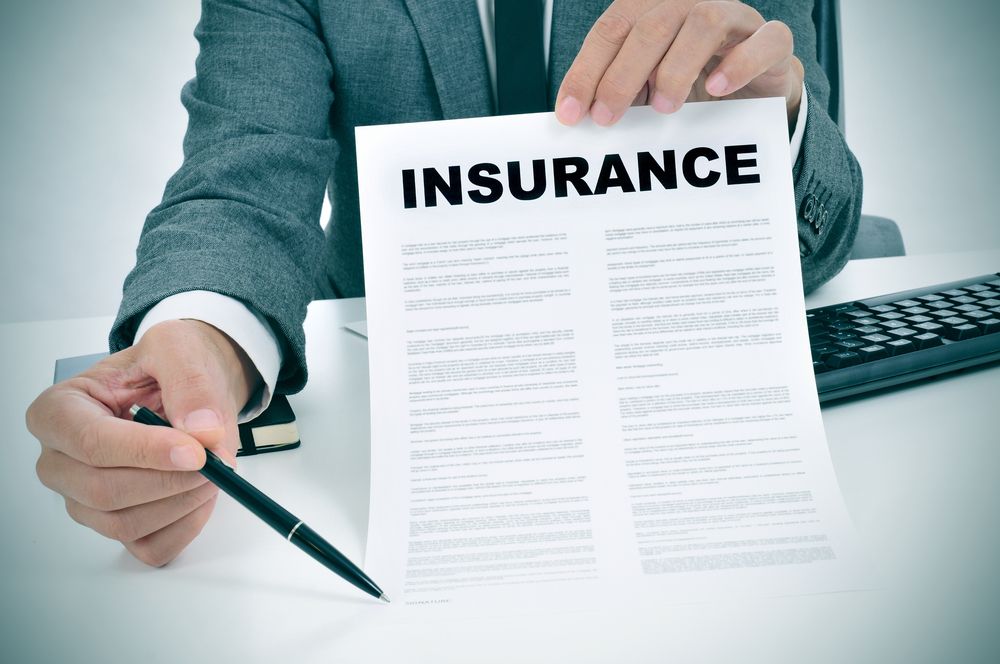
Different Types of Insurance and Which Ones You Need (Part 2)
In part one of this two-part series, we shared detailed information on the different types of insurance.
This time around, we’ll focus more on the types of insurance you need, the types you can do without, and other details on how to make informed buying decisions.
4 Types of Insurance Everyone Needs
No matter who you are, there are four types of insurance you probably need. With these protecting you, you’ll feel better about anything the future throws at you.
Life Insurance
A life insurance policy is something you buy to protect your loved ones in the future. With this, your beneficiary will receive a payout upon your death.
There is more than one type of life insurance policy — with term, whole, and universal the most common — so carefully consider the pros and cons of each.
Health Insurance
Health insurance — also known as medical insurance — is designed to pay for some or all of your medical expenses.
Expenses include but are not limited to doctor visits, hospital visits, hospital stays, and lab testing.
If you don’t receive medical insurance from your employer, learn more about the options available to you for individual purchase.
Long-Term Disability Insurance
Long-term disability insurance provides you with regular payments should you be unable to work for an extended period of time.
Regardless of your age, an illness or injury could result in a long-term disability. With this type of insurance, you’ll receive money to help you pay your bills and support your family.
Note: there are also federal disability programs you may qualify for.
Car Insurance
It’s illegal to operate a motor vehicle in the United States without auto insurance. You’re required to carry the minimum amount of coverage as outlined by your state.
Driving without auto insurance can result in a large fine and a license suspension, both of which will take a toll on your personal and financial life.
5 Insurance Policies That Are Only Necessary In Specific Cases
Just as there are insurance policies you absolutely need to purchase, there are some that don’t make much sense for everyone to get.
Here are five insurance policies that only serve certain people:
Flight Insurance

Flight insurance is a form of travel insurance. It protects you against unforeseen costs associated with traveling by plane.
If you’re considering flight insurance, you might as well purchase a comprehensive travel insurance policy. You can obtain more coverage for the same or slightly more money.
Life Insurance For Kids

Life insurance for kids is exactly what it sounds like. It’s a policy that pays out should your child pass on before the term expires.
Life insurance is designed to protect against economic damage. The death of a child isn’t likely to alter your finances too much.
If you have the money to buy a life insurance policy for a child, you’re better off considering other options such as:
- Term life insurance
- Whole life insurance
- Joint life insurance
Accidental Death Insurance

This type of insurance policy pays your beneficiary if the cause of death is an accident.
There are two primary issues with accidental death insurance:
- You’re not likely to use it
- The insurance company will do everything they can to prove that the death was not an accident
Disease Insurance
Disease insurance — often known as critical illness insurance — pays a lump sum to the policyholder if they’re diagnosed with an illness predetermined by the policy.
If you’re considering any type of critical illness insurance, learn more about what is and isn’t covered. Also, there is sure to be pre-existing condition language in the contract.
Mortgage Life Insurance

Mortgage life insurance will pay your mortgage balance if you pass on before your loan is paid off.
This type of insurance doesn’t make much sense if you already have a life insurance policy.
Getting Quotes and Buying Insurance Coverage
Before you buy any type of insurance coverage, it’s essential to obtain and compare a minimum of three to five quotes. Doing so will clear your mind and allow you to make an informed and confident buying decision.
Here’s the best way to get and compare insurance quotes in today’s market:
- Know what you want: Before you do anything, know exactly what you’re looking for. This will help you find the right policy from the right insurance provider.
- Do an online search: In today’s world, every insurance provider has a website. Furthermore, most of them make it easy to request a quote. Taking this one step further, you can use an online broker that provides quotes from multiple insurance companies.
- Compare your options side by side: Don’t assume that one insurance company and policy is the same as the next. Compare the finer details side by side to determine which policy best suits your wants and needs.
This process will allow you to find and buy a comprehensive insurance policy at a price you’re comfortable paying.
What to Look For In An Insurance Policy
This varies from one type of insurance policy to the next, but some basic details always come into play. These include:
- Coverage: You need to know exactly what you’re getting in return for your money. A comprehensive insurance policy is more important than anything else.
- Cost: It’s safe to say that you have a budget to adhere to. Consider this as you shop for and compare insurance policies.
- Customer service: For example, if you’re buying a motor insurance policy, customer service is essential, as there may come a time when you need to file a claim. If your vehicle insurance provider has poor customer service, it’ll only complicate things during this difficult time of your life.
The approach you take won’t be exactly the same as the next consumer, but a focus on coverage, cost, and customer service will point you in the right direction.
Factors That Determine the Cost of Your Insurance
Once again, this varies from one type of policy to the next. Let’s take a look at a few examples to help you better understand how your premium is calculated:
- Life insurance: The type of life insurance, such as whole vs. term life, greatly impacts the cost. Whole life insurance is always more expensive since you’re getting coverage for life. Your age, health, and death benefit also come into play.
- Health insurance: The cost of a health insurance policy is based on factors such as coverage, pre-existing conditions, age, and type of policy (HMO, EPO, PPO).
- Vehicle insurance: In addition to the type of coverage, your driving history has a big impact on your premium. A clean record results in a more affordable motor insurance policy premium.
Note: no two insurance companies take the same approach to pricing, which is why it’s so important to compare multiple policies before buying.
Frequently Asked Questions (FAQs)
Can you get life insurance with a pre-existing condition?
The simple answer is yes, but it can be complicated based on factors such as the type of pre-existing condition and when you were last treated.
What happens to a life insurance policy when someone dies?
When someone with life insurance passes on, the beneficiary will receive the death benefit. At that point, the account is closed.
How can I find the best insurance deals?
The best way to find insurance deals is by using an online broker that provides several quotes from one application. For instance, if you’re shopping for a health insurance policy, you’re presented with quotes from matching providers. You can then compare the details side by side in real-time.
What is an insurance premium?
An insurance premium is the amount of money you owe to maintain your coverage. It’s often paid monthly, quarterly, semi-annually, or annually.
What is a no-claims bonus and how does it work?
For example, with car insurance, your provider may provide a bonus if you don’t make a claim over a certain period of time.
What is pet insurance?
Pet insurance is similar to health insurance for humans. The only difference is that it covers your pet’s medical care, such as vet visits, medication, and testing.
What is commercial property insurance?
Commercial property insurance is a type of policy designed to protect commercial buildings, such as office buildings, shopping malls, and restaurants.
What is product liability insurance?
Product liability insurance is for companies that require protection against the potential of bodily injury or property damage related to the products they sell. A liability insurance policy often has many terms and conditions, so it’s important to know exactly what you’re getting.
Final Thoughts
We hope that this information will help you compare the different types of insurance policies with the idea of buying the ones that best suit your personal and financial circumstances.
Take your time, compare policies, and only make a purchase when you’re 100 percent confident in doing so. This will ensure that you’re protected by comprehensive coverage that will give you peace of mind.


Article comments